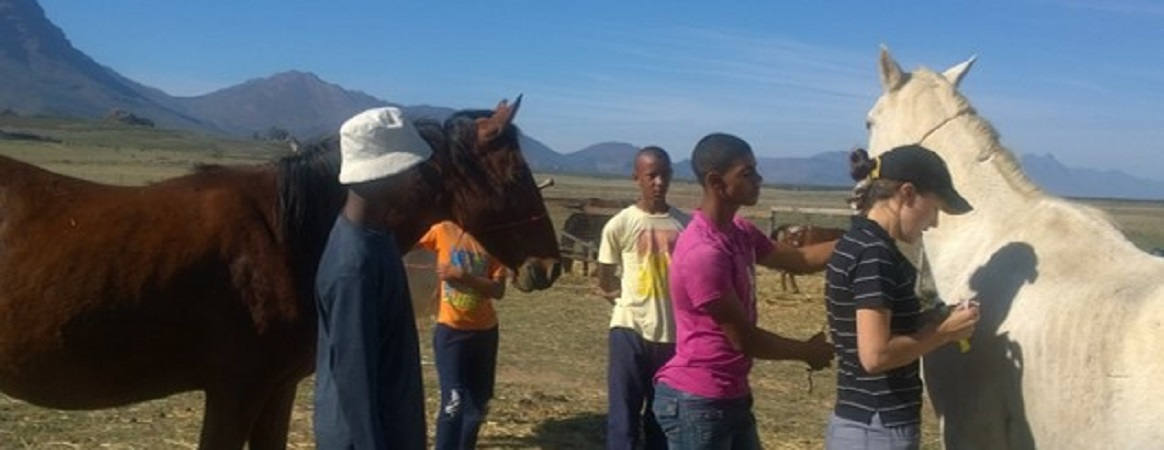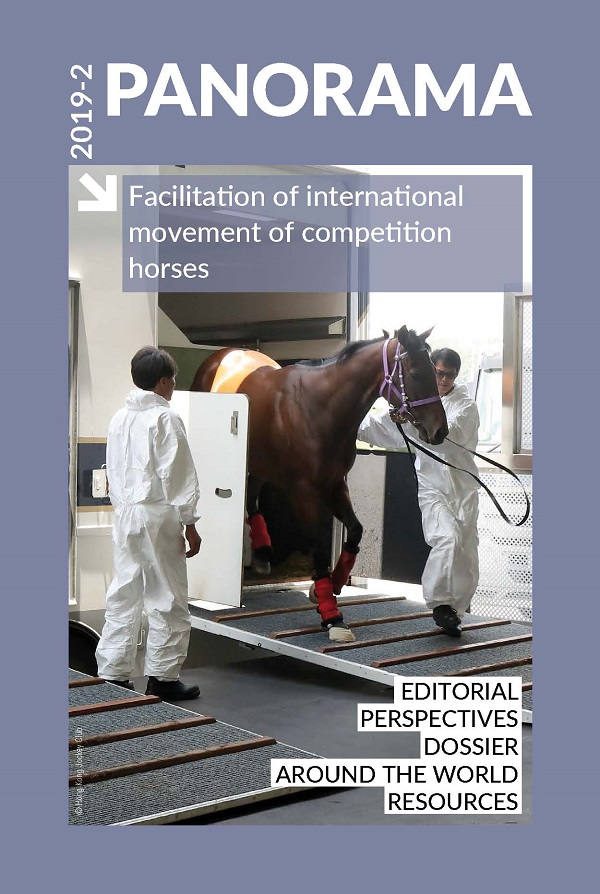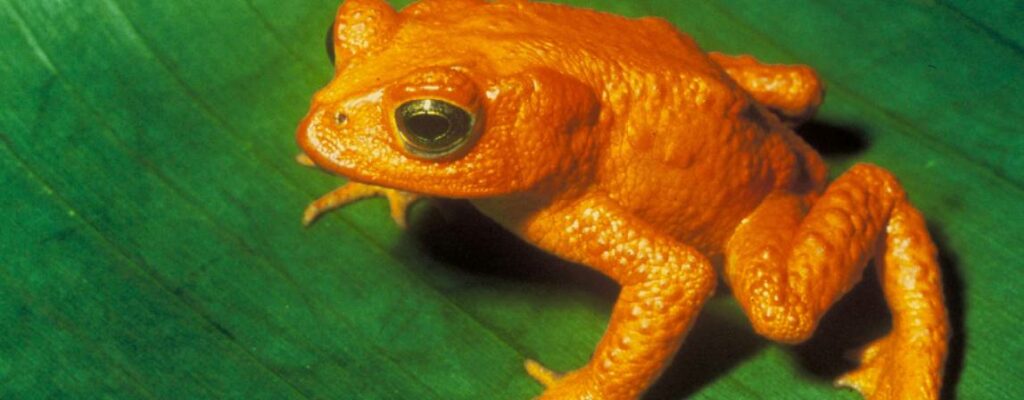Dossier Posted on 2019-08-08 13:05:40
Public–private partnership supporting scientific research to contribute to the OIE standard-setting process
Keywords
Authors
Morgane Dominguez(1), Neo J. Mapitse(1)*, Matthew Stone(2), Alain Dehove(3), Lydia Greve(4), Ann Cullinane(5), Cristóbal Zepeda(6) & Étienne Bonbon(7)
(1) Status Department, World Organisation for Animal Health (OIE).
(2) International Standards and Science, World Organisation for Animal Health (OIE).
(3) Financial Directorate, World Organisation for Animal Health (OIE).
(4) World Fund Unit, World Organisation for Animal Health (OIE).
(5) Biological Standards Commission, World Organisation for Animal Health (OIE).
(6) Scientific Commission for Animal Diseases, World Organisation for Animal Health (OIE).
(7) Terrestrial Animal Health Standards Commission, World Organisation for Animal Health (OIE).
* Corresponding author: disease.status@oie.int
After an international call for tenders launched by the OIE in 2015, the FEI and IFHA funded the following studies:
- validation studies of diagnostic assays for African horse sickness (AHS) [1] (a serological assay); glanders [2] (serological assays); and equine influenza (a molecular assay)
- a study on the vaccination protocols against equine influenza
- a review of AHS vaccine technologies and economic assessment of a new AHS vaccine.
The outcomes of these validation studies and of the study on equine influenza vaccination protocols were taken into account by the relevant OIE Specialist Commissions when they revised the recommendations of the Manual of Diagnostic Tests and Vaccines for Terrestrial Animals and the Terrestrial Animal Health Code. The results of the studies on AHS vaccines were also recognised by the International Horse Sports Confederation (IHSC) in supporting the development of a safer AHS vaccine.
Reliable diagnostic assays and effective vaccines are instrumental in disease prevention and control and for the safe movement and importation of animals. Through its network of Reference Laboratories, Collaborating Centres and other organisations, the OIE strives to engage in successful partnerships to support the development of science-based standards.
https://doi.org/10.20506/bull.2019.2.2978
References
- Durán-Ferrer M., Agüero M., Zientara S., Beck C., Lecollinet S., Sailleau C., Smith S., Potgieter C., Rueda P., Sastre P., Monaco F., Villalba R., Tena-Tomás C., Batten C., Frost L., Flannery J., Gubbins S., Lubisi B.A., Sánchez-Vizcaíno J.M., Emery M., Sturgill T., Ostlund E. & Castillo-Olivares J. (2019). – Assessment of reproducibility of a VP7 Blocking ELISA diagnostic test for African horse sickness. Transbound. Emerg. Dis., 66 (1), 83–90. https://doi.org/10.1111/tbed.12968.
- Elschner M.C., Laroucau K., Singha H., Tripathi B.N., Saqib M., Gardner I., Saini S., Kumar S., El-Adawy H., Melzer F., Khan I., Malik P., Sauter-Louis C. & Neubauer H. (2019). – Evaluation of the comparative accuracy of the complement fixation test, Western blot and five enzyme-linked immunosorbent assays for serodiagnosis of glanders. PLoS ONE, 14 (4), e0214963. https://doi.org/10.1371/journal.pone.0214963.










